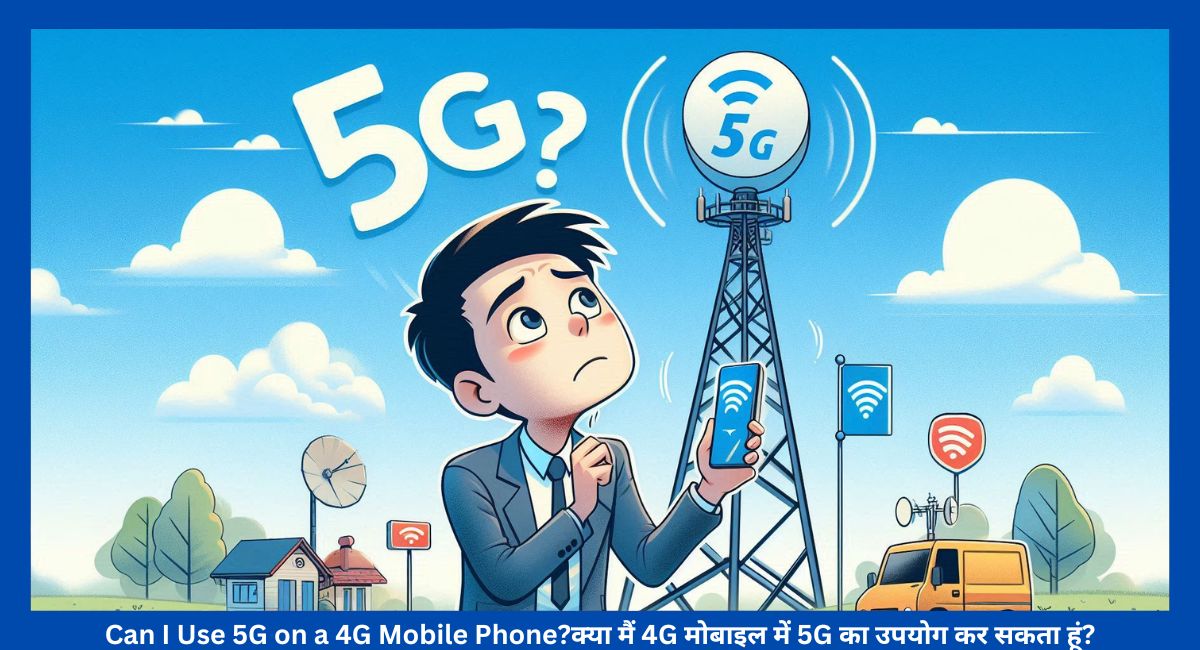With the rise of 5G technology, many are wondering if they can access the lightning-fast speeds and enhanced connectivity features offered by 5G networks using their current 4G mobile phones. The short answer is no, but let’s dive deeper into why that is and what you need to know about the transition from 4G to 5G.

1. Understanding the Basics of Mobile Network Generations
1.1 What is 4G?
4G, or the fourth generation of mobile technology, brought significant improvements over its predecessor, 3G. It offers faster data speeds, better call quality, and the ability to handle high-bandwidth applications like HD video streaming and online gaming.
1.2 The Emergence of 5G
5G, or fifth-generation technology, promises even greater advancements. It is designed to deliver faster speeds, lower latency, and support for a higher density of connected devices. This technology is crucial for innovations such as autonomous vehicles, smart cities, and advanced IoT applications.
2. Key Differences Between 4G and 5G
2.1 Speed and Latency
One of the most noticeable differences is the speed. 5G networks can achieve speeds up to 100 times faster than 4G, with latency reduced to a fraction of what 4G offers. This means near-instantaneous response times and much smoother user experiences for tasks like gaming and streaming.
2.2 Frequency Bands
4G and 5G use different frequency bands. 4G operates primarily in the sub-6 GHz spectrum, while 5G utilizes both sub-6 GHz and millimeter-wave (mmWave) bands. The mmWave bands offer faster speeds but have a shorter range and require a denser network of cells.
2.3 Network Architecture
5G networks are designed with a different architecture that includes more advanced technologies such as network slicing, which allows the network to be divided into virtual segments to cater to different use cases and applications.
3. Why 4G Phones Can’t Access 5G
3.1 Hardware Limitations
4G mobile phones are equipped with hardware that is specifically designed to operate with 4G frequencies and protocols. 5G requires new chipsets and antennas to handle the different frequency bands and network requirements.
3.2 Software Incompatibility
In addition to hardware, 5G connectivity requires specific software and firmware that 4G phones do not have. Even if a 4G phone could somehow connect to a 5G network, it wouldn’t be able to take full advantage of the new technology due to these software limitations.
4. What Can You Do to Use 5G?
4.1 Upgrading Your Device
The most straightforward way to use 5G is to upgrade to a 5G-compatible mobile phone. These devices are built with the necessary technology to access and utilize 5G networks.
4.2 Checking Network Availability
Before upgrading, it’s essential to check if 5G is available in your area. 5G networks are still being rolled out globally, and availability can vary significantly depending on your location.
4.3 Reviewing Your Mobile Plan
Even if you have a 5G phone, you’ll need a mobile plan that includes 5G access. Contact your service provider to ensure that your plan supports 5G connectivity and to understand any additional costs that may be involved.
5. The Future of 4G and 5G Integration
5.1 Coexistence of 4G and 5G
For the foreseeable future, 4G and 5G will coexist. Many areas will have a mix of both technologies, with 5G gradually expanding and 4G still serving a significant role.
5.2 Transition Period
As 5G becomes more widespread, there will be a transition period where both 4G and 5G networks are used together. This allows for a smoother transition and ensures that users with older devices are not left without service.
While it’s not possible to use 5G on a 4G phone due to hardware and software incompatibilities, the transition to 5G is an exciting development in mobile technology. Upgrading to a 5G-compatible device and checking for network availability in your area are the best steps to take if you want to experience the benefits of 5G.
Next-Level Gaming: iPhone 16 Upgrades
Related :Tachyon SBC: 5G, Snapdragon, and 12 TOPS NPU Powerhouse
1. Can I make calls on a 5G network with a 4G phone?
No, calls made on a 5G network require a 5G-compatible device, as 4G phones do not support the necessary protocols.
2. Will my 4G phone get slower as 5G networks expand?
No, your 4G phone will continue to operate on the 4G network. 5G expansion does not affect the performance of 4G devices.
3. Are there any plans for 4G phones to be upgraded to support 5G?
No, 4G phones cannot be upgraded to support 5G due to the significant hardware and software changes required.
4. What are some popular 5G phones available on the market?
Some popular 5G phones include the latest models from brands like Apple, Samsung, and Google. Check for specific 5G-compatible models in your region.
5. How can I find out if 5G is available in my area?
You can check with your mobile service provider or use online coverage maps to see if 5G is available in your area.











You’re brilliant